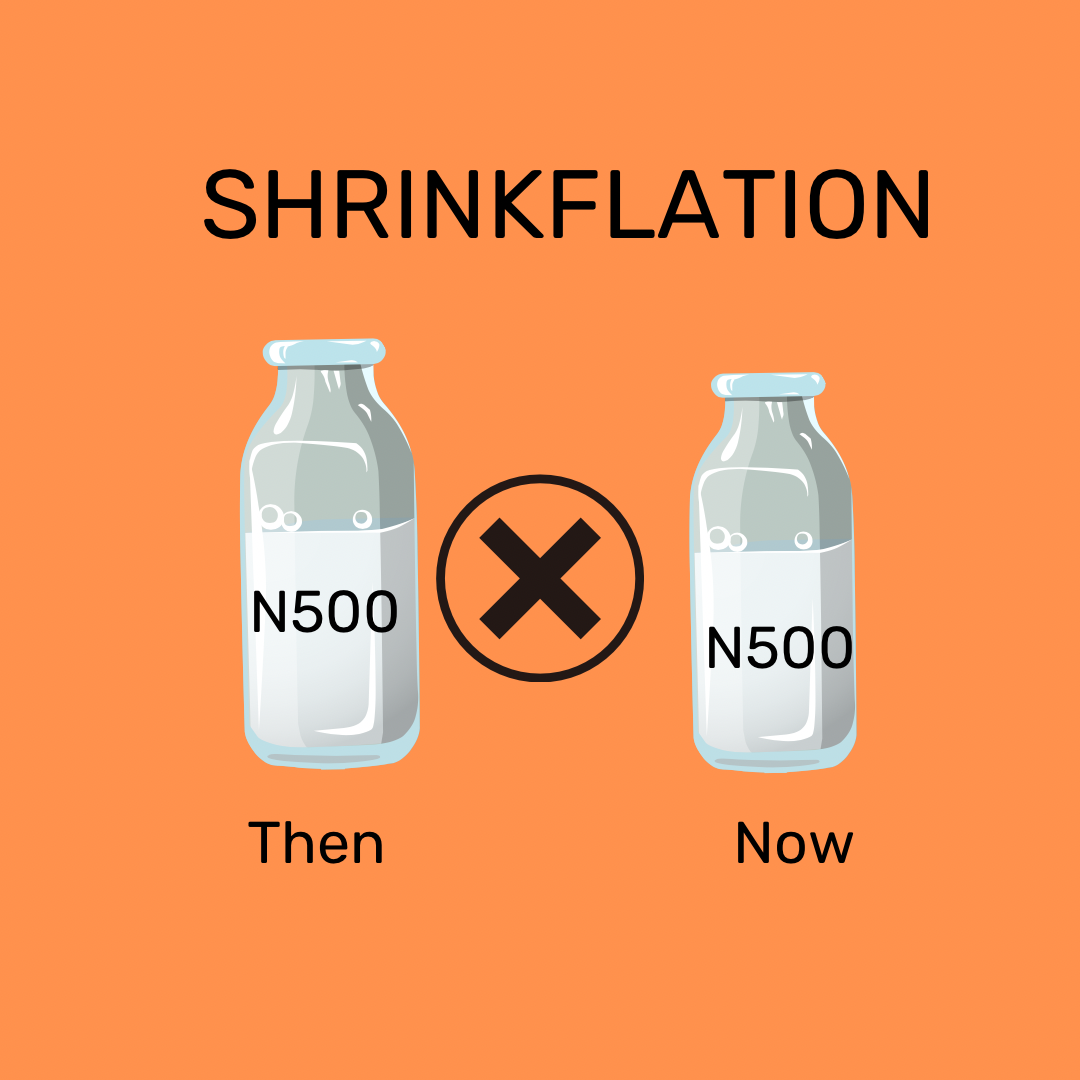By Zion Rufus
Have you noticed smaller rationing in the packaging of your favorite consumables? Well, a lot of consumers are crying out!
Shrinkflation, a new term for an old strategy, has now been tagged by professionals across the globe as the new global endemic.
The marketing tactic of shrinkflation comes into play when cost of production increases, as companies tend to cut costs either by reducing quantity or quality of a product while maintaining the price, or maintaining the quality and quantity and inflating the price. Meanwhile, consumers are keenly focused on the price of goods and less aware of the small changes to the size or volume and quality of the products.
As a result of global inflation, economic disruptions, sustained increase in the general price level of goods, countless big name brands, especially in the FMCG sector have been found culpable in the Shrinkflation practice, and it gets worse as professionals across the globe identify the impact of the marketing tactics on their local markets.
Ignacio Ottati, a business analyst at The Catalyst Airport Authority said: “I have seen many manufacturers shrinking the size of the product but also increasing the price. At least that is the case here in Calgary. Every time there is inflation or significant changes in the economy the food sector acts fast to increase prices way above what the inflation rate may be. They definitely take advantage of the situation, and it hurts everyone’s pockets.”
Tatiana Betson, Principal Science Manager at BAT noted: “Well, it has actually gone on for years, even when inflation was very low as a way to increase gross margins. It’s definitely not new nor limited to times of high inflation.”
Theo Carpio Segundo, sales and online transactions specialist said: “Now I know the term. In the Philippines, shrinkflation is always an option when inflation arises. Especially in Filipino morning bread “Pan De Sal”. Decades ago, it was as large as your whole palm, and as inflation passed by year after year, now it has become as small as a fist of a two-year-old toddler.”
John Patrick Kerns, AIB Merchant Services in Ireland shared: “What I see now here in Ireland is when you go for a meal in a pub or a local restaurant many of them have reduced their portion sizes – so sometimes you have to look • for the food on the plate If that happens I say it nicely to the server that I came here hungry & I’m leaving hungry so I won’t be back No often mind you but it’s a bit of a trend!”
Ivor Tackie Adams, Senior Citizen at Pensioner in Ghana submitted: “Ghana has no excuse to increase prices in petroleum products. We have the petroleum and we’re drilling it in the sea. We get 25% of the output of the drills and have the Tema Oil Refinery. The common sense in economics is to put the factories into production and employ workers to do the job. We can’t continue to import refined oil at exorbitant rates to sell. Please, put 25% of the crude oil into TOR and we’ll refine our own petrol at a cheaper rate and get the workforce to do that.”
Aurora Elezi, a CX advocate shared: “My (2) young daughters love Babybel cheese and it always came in a packet of 4 where we usually shop, so they shared. In the last few months or so the price became 30% higher and the pack reduced to 3 not 4 little snacks anymore. I stopped buying the product altogether to avoid them fight about it, but seriously this is daylight robbery.”
Moya Gray, a lawyer said: “This is a fancy name for human behavior – more consumers than suppliers creates more opportunity for increased sales all the while the consumer is willing to either outbid the others or pay more for the product. This is more a consumption challenge than a supplier problem except for wheat and oil products. But even in those areas consumption still drives the market. Can’t get by without food – so how do you eat when you can’t buy food? In these times the localization of food production may undo the globalization of demand.”
Engineer Farooq Ahmad, ex GM, Production at Vehicles Rebuild & Assembling shared: “Shrinkflation is rampant in every field of business. The products are reduced in size, weight and volume. The quality is also sometimes compromised. Its ok as long as making smaller ready to use products are marketed, like shampoo in sachet etc. This concept of commercialisation makes things affordable for the customer to paying only for the quantity being immediately used. But reducing the size of Tissue Box, Biscuit pack or Chocolates with cuts and groves to reduce the weight with same or sometimes higher price tag, is like a theft or deceiving the customer and can’t be approved ethically.”
In Nigeria, companies are also grappling with rapidly rising costs that are passed on to their customers as content and sizes of packaged products like cereals, beef rolls, beverages, noodles, pasta, powdered products, and more have been manipulated and reduced.
In an interview with MARKETING EDGE, Deborah Olaiya shared that she has seen package downsizing in brands such as Gala Sausage Roll, and Indomie.
“We love Indomie Noodles. In fact, I think Nigeria is obsessed with the brand. But daily, it’s like they are slowly creeping up on us with the price increments. One day you are buying 70g for N60, next day you are buying for N80; the following week, the store owner tells you it’s now N120. Meanwhile, what Gala used to sell for N50 has transformed to N100, even though they are now selling an unbelievably smaller size for N50. Can we be considered too?”






Comment
No comments found.